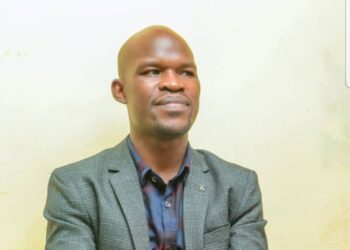“…and I brought the proposal of the Italian lady, Pinetti…and now recently we are working with the Serbians, to take Coffee to Russia”—said President Museveni
The National Coffee (Amendment) Bill, 2024, is more than just legislative disagreements with President Museveni and his cohort Hon. Anitah Annet Among who owes her Speakership to him due to a prethora of international sanctions and other scandals which were threatening her seat before he stood up for her. Both of these appear to be at the core of the push to rationalize the Uganda Coffee Development Authority (UCDA), in a move to consolidate total control over the coffee trade.
Understand this; Uganda is a key player in the global coffee market, valued at around $102 billion. In the last year alone, Uganda exported approximately 6.13 million bags of coffee, generating around $1.14 billion in revenue. As one of the top coffee producers in Africa, second only to Ethiopia, Uganda’s high-quality Arabica and Robusta beans are in high demand, particularly in Europe, the United States, and Asia. This makes Uganda a vital part of the global coffee supply chain. Contrast this with our national budget estimate requirement of 72 trillion Ugx.
Furthermore, the coffee sector is not just an economic powerhouse but also a cultural symbol, with over 130 districts and more than 12 million Ugandan jobs involved in the entire value chain.
This potential phasing out of UCDA raises more questions than there are answers about the cost opportunity and the impact on the coffee subsector. UCDA has played a crucial role in supporting local farmers, enhancing coffee quality, and promoting Ugandan coffee on the global stage.
Besides that, there are some political ramifications; the timing of the bill is politically charged, with the 2026 general elections on the horizon. Increased revenue from coffee exports could empower the populace economically as seen from the increase in the happiness index in greater Buganda, making them less susceptible to vote-buying tactics.
This poses a threat to Museveni’s grip on power, as a more economically empowered citizenry is likely to make more informed political decisions.
And there is also the seemingly strong opposition from Buganda region MPs, a genuinely significant coffee-growing area and a political stronghold for the opposition which is motivated by the Speaker of Parliament’s controversial remark,— “Make sure those Baganda do not get the numbers,”
This came out as being suspicious of a targeted political strategy to weaken Buganda’s economic influence and opposition stance.
Here, the old adage of no smoke without fire is very relevant seeing the smoke from Buganda has not gone out since independence.
What is in Coffee? Its importance extends beyond being a popular beverage. Used coffee grounds can enrich garden soil as a natural fertilizer, exfoliate skin, repel insects, and neutralize odors.
It can also serve as a natural dye for fabrics, be converted into biofuel and can also tenderize meat, making it more flavorful and tender.
But more importantly, ground coffee can be used in energy storage devices like batteries in a world where AI is demanding more battery life for further technological advances.
Do you have a story in your community or an opinion to share with us: Email us at editorial@watchdoguganda.com













